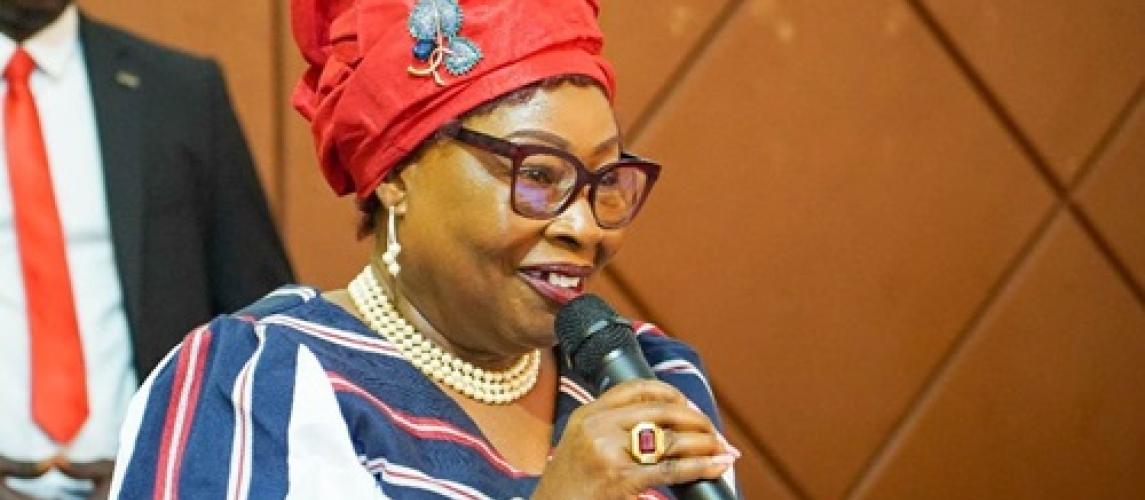
“The Fight Against TB Is a Fight That We Can Win” -says First Lady Boakai
Monrovia, Liberia - As Liberia marks world tuberculosis (TB) Day, First Lady Kartumu Yarta Boakai is calling on citizens and residents across the country to take decisive action in ending the disease.
Tuberculosis, a deadly disease that mainly affects the lungs, is caused by bacteria.
Mrs. Boakai says, though the TB situation is serious in Liberia owing to poverty, limited healthcare infrastructure and the aftermath of past crises, Liberians must not be defined by the challenges but by the resilience and unity with which they confront it.
“Let us be clear: the fight against TB is a fight that we can win. The treatment is free and available, and with a treatment duration that can take up to six to twelve months, depending on the condition, we have the means to cure this disease,” Mrs. Boakai said, stressing the need for collective commitment.
The First Lady wants persons showing early signs and symptoms of the disease, including coughing, night sweats, weight loss, or fever, to seek medical attention.
“We must support those among us who are affected by TB and ensure that they do not face this challenge alone. We must take our health and the health of our communities into our own hands by practicing preventive measures and attending regular health facility visits,” said Mrs. Boakai.
World TB Day, commemorated March 24 each year, promotes public awareness about the disease and its devastating consequences while rallying concerted efforts to eradicate it.
March 24 being on Sunday a non-working day in Liberia, the official commemoration was held today, Monday, March 25, at Golden Gate Hotel in Paynesville under the global theme: “Yes, we can End TB,” and the Local theme: “Working together, we can end TB.
In her keynote address, First Lady Boakai said the themes must not be taken as mere slogans but rather intentional reaffirmation of collective resolve to eliminate the disease.
The World Health Organization estimates that 2 billion people are infected with TB worldwide, with a huge number of cases occurring in less-developed countries, including Liberia, which is among 30 high-burden TB countries.
The 2023 Demographic and Health Indicator Survey, however, shows that Liberia has a TB treatment success rate of about 76.6 percent, indicating some progress in the national fight against TB.
While praising health workers’ dedication and the collective efforts of Liberians, Mrs. Boakai warned against complacency, challenging them to redouble their strides in reducing TB deaths by 95% and cut new cases by 90% between 2015 and 2035 as enshrined in the post 2015 End TB Strategy.
Mrs. Boakai further pledged to supporting initiatives aimed at increasing awareness, improving access to treatment, and fostering the necessary behavior change in the population.
“We will advocate for the strengthening of our healthcare system to ensure that every TB patient receives the care they need without suffering financial hardship. We will engage with partners within and beyond the health sector, including social protection, labour, immigration, and justice, to build a comprehensive response to this epidemic,” Mrs. Boakai said.
Also speaking, representatives from the World Health Organization, USAID, Plan International, among others, took time out to convey specific messages and reaffirm their commitment to eliminating TB.
Organized by the Ministry of Health, the program brought together health workers, community and civil society leaders, students, stakeholders, and key partners.
